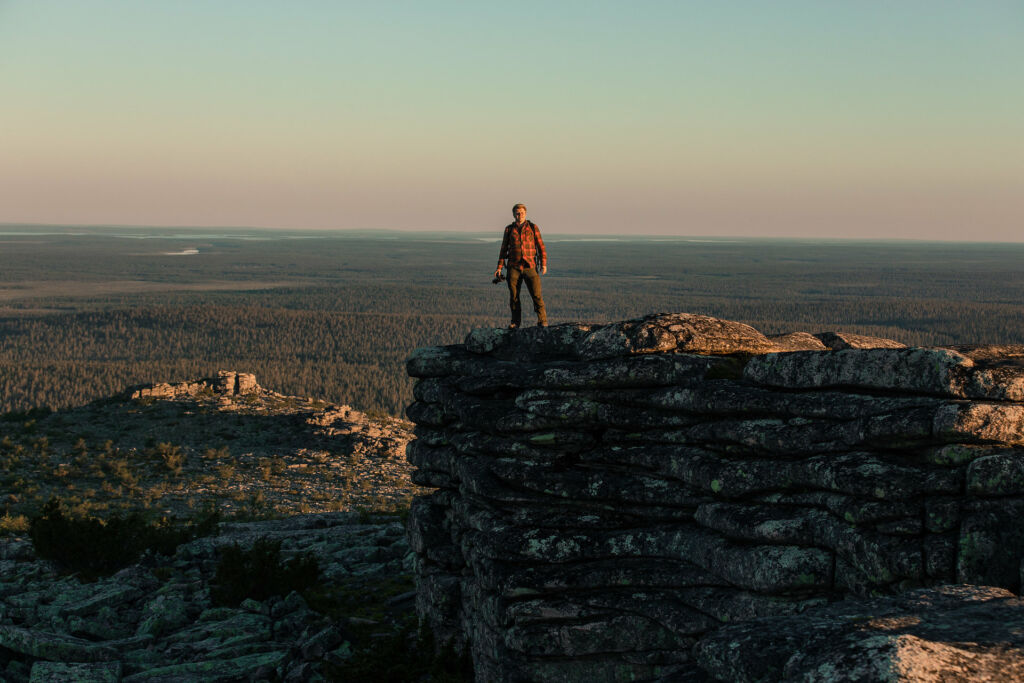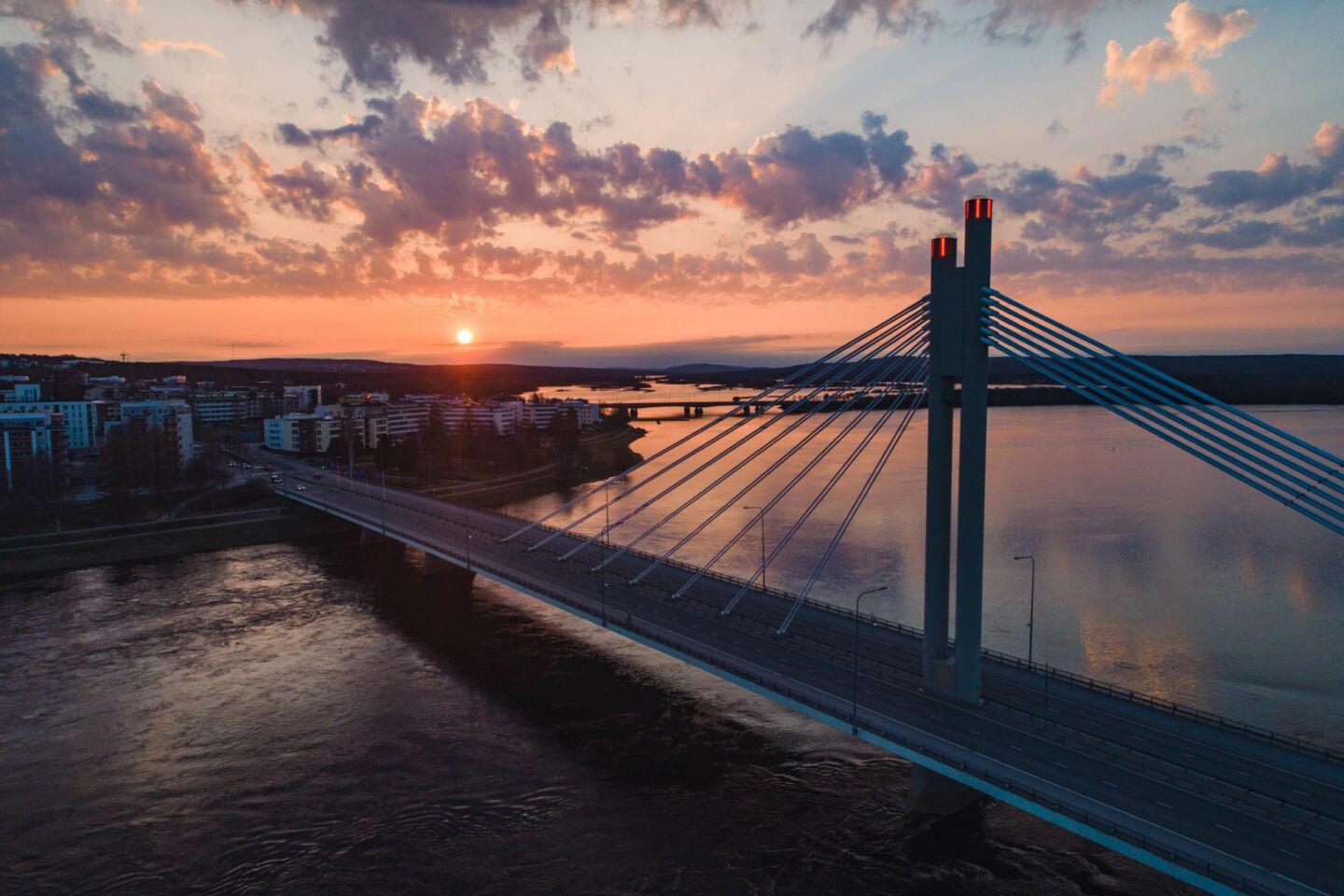Every summer, the Midnight Sun paints the Finnish Lapland sky in extraordinary colors and light worth capturing. Learn how to make the most of this unique light condition.
As a vast contrast to the long and dark Arctic winter, Lapland presents a spectacular light phenomenon in the summer; that of the Midnight Sun. During the period of the Midnight Sun, also known as the nightless night, the sun does not set below the horizon at all, offering productions unique lighting and 24/7 filming opportunities. To learn more about the opportunities that the nightless night offers productions, we reached out to local Midnight Sun expert and CEO of production service company All About Lapland, Alexander Kuznetsov.
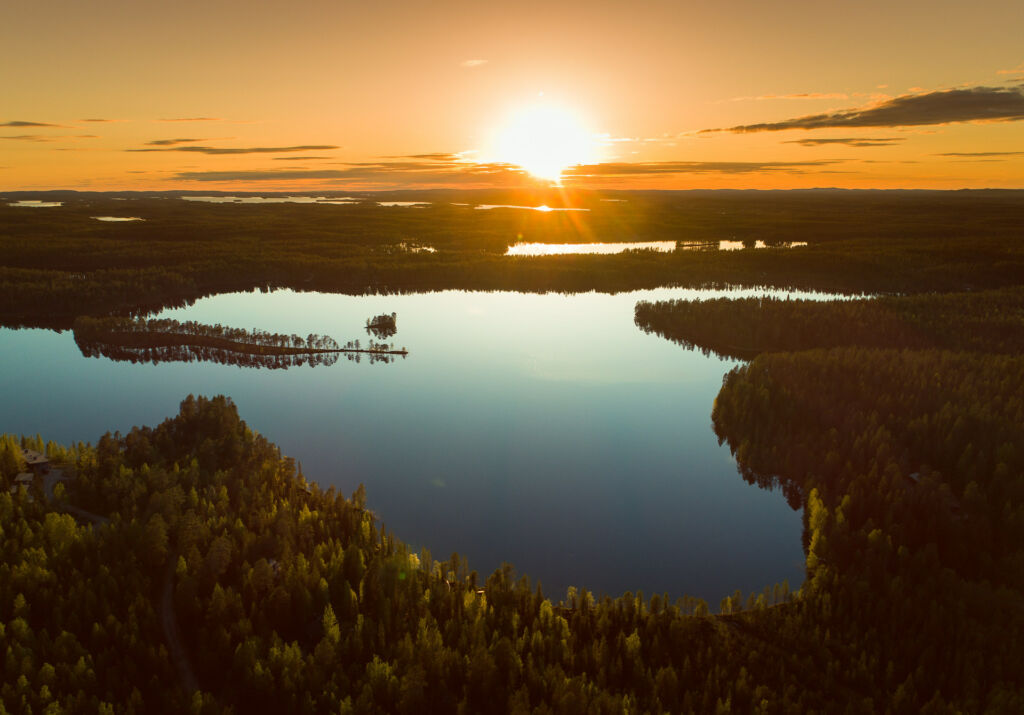
ROUND-THE-CLOCK FILMING OPPORTUNITIES
Lapland has a land area of about 100 000 square kilometers, so naturally, the best times for filming under the Midnight Sun vary according to location. The further north you go, the longer and more intense the period of the nightless night. As a general rule, the best dates for capturing the Midnight Sun are around Midsummer.
The most suitable time of day depends on your filming needs. Even though daylight is present 24 hours a day, the amount of sunlight and the shades of light vary throughout the night. According to Kuznetsov, the so-called Golden Hour is the optimal time to witness the magic of the Midnight Sun. The Golden Hour lasts approximately 5-6 hours and it begins around 10 PM. The most enchanting time frame is usually from 11 PM to 2 AM.
The chase after the Midnight Sun means staying awake in the middle of the night, and it is usually worth it. When the sunlight lights up your night, it helps you stay refreshed and awake. For productions, these unique light conditions offer a possibility to shoot day scenes even in the nighttime, offering the filming schedule a bit more flexibility.
The Midnight Sun is not visible in cloudy and rainy weather, but a few soft clouds can create interesting colors and effects. If you can spot the meeting point between rainy and sunny weather, your chances of catching a rainbow against a pink backdrop are quite good. Kuznetsov’s tip is to reserve enough time for catching the perfect image or shot, which can take hours or even days.
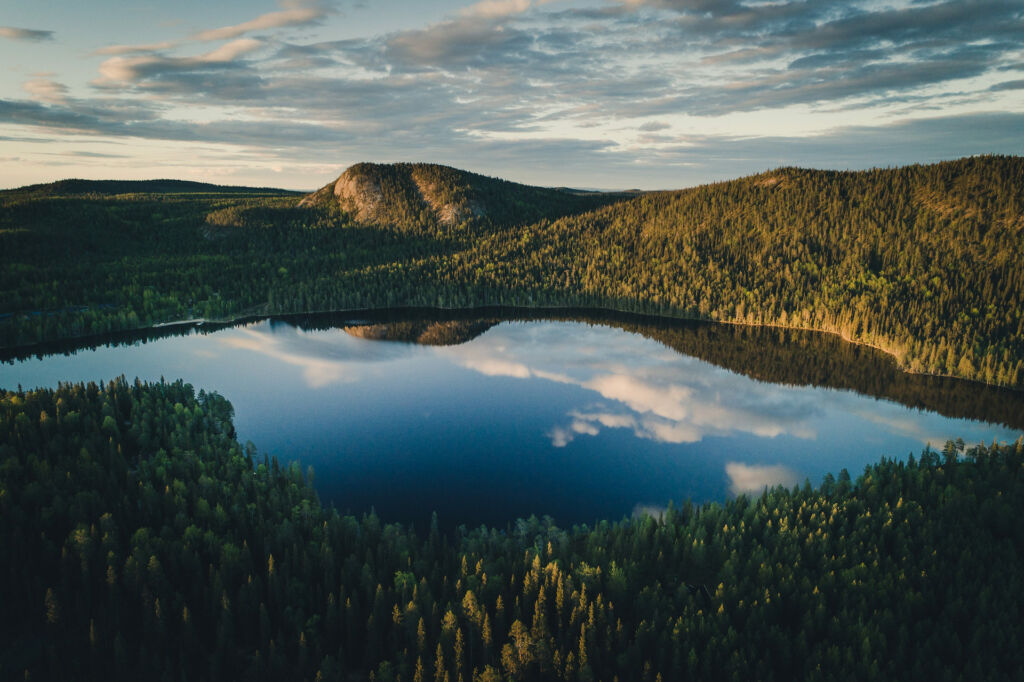
BEST LOCATIONS FOR THE NIGHTLESS NIGHT
The best locations for capturing the Midnight Sun are places where you can see the entire horizon, so climb to the top of Arctic fells and let the nightless night do its magic.
Nature locations work great with the hues of the Midnight Sun, but urban areas offer unique compositions as well. Kuznetsov’s tip is to search for large, open lakes where you can film the Midnight Sun from the ground level and combine the colors with interesting reflections in the water. Be creative. The Midnight Sun fills the whole scenery with light, so great filming spots can be found virtually everywhere.
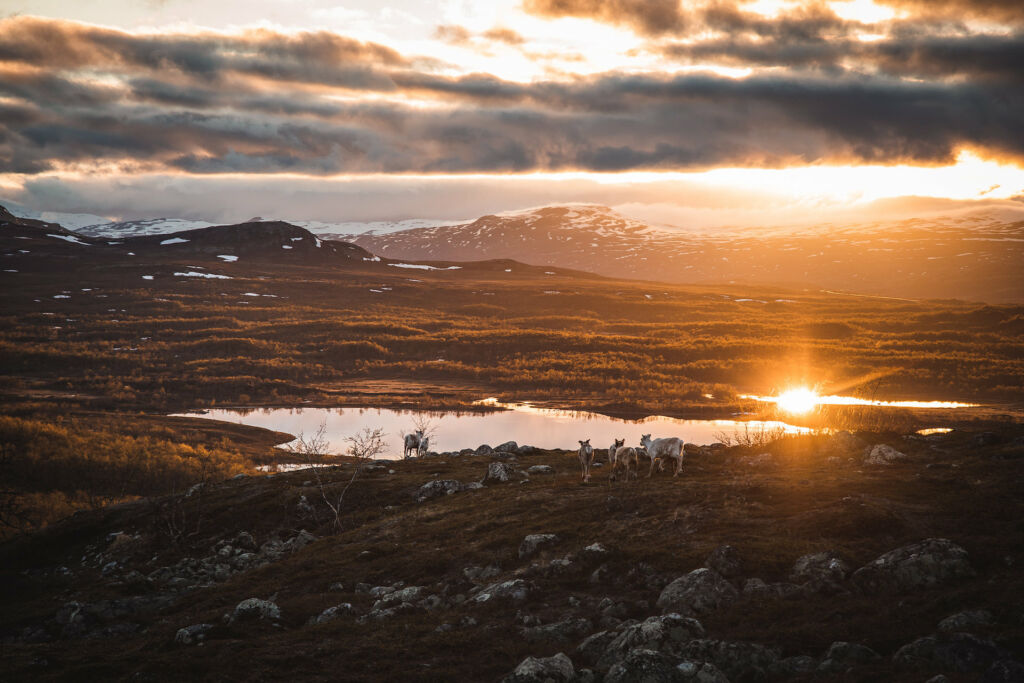
PAINT WITH YOUR CAMERA
The color of the Midnight Sun is warm, with the tone of the sky varying from burning orange to soft purple. The unique pastel color palette would make any painter jealous. As a production reference, the film Master Cheng took advantage of this unique light condition, and the Midnight Sun gave the film a special tone of color.
From a technical point of view, suitable camera settings will help you make the most of the Golden Hour. Kuznetsov shares that when the light is warm and deeply yellow, a hint of blue gives the shadows more depth. Meanwhile, a neutral density filter can help you reduce the strong contrast between dim foreground areas and the bright sunset.
